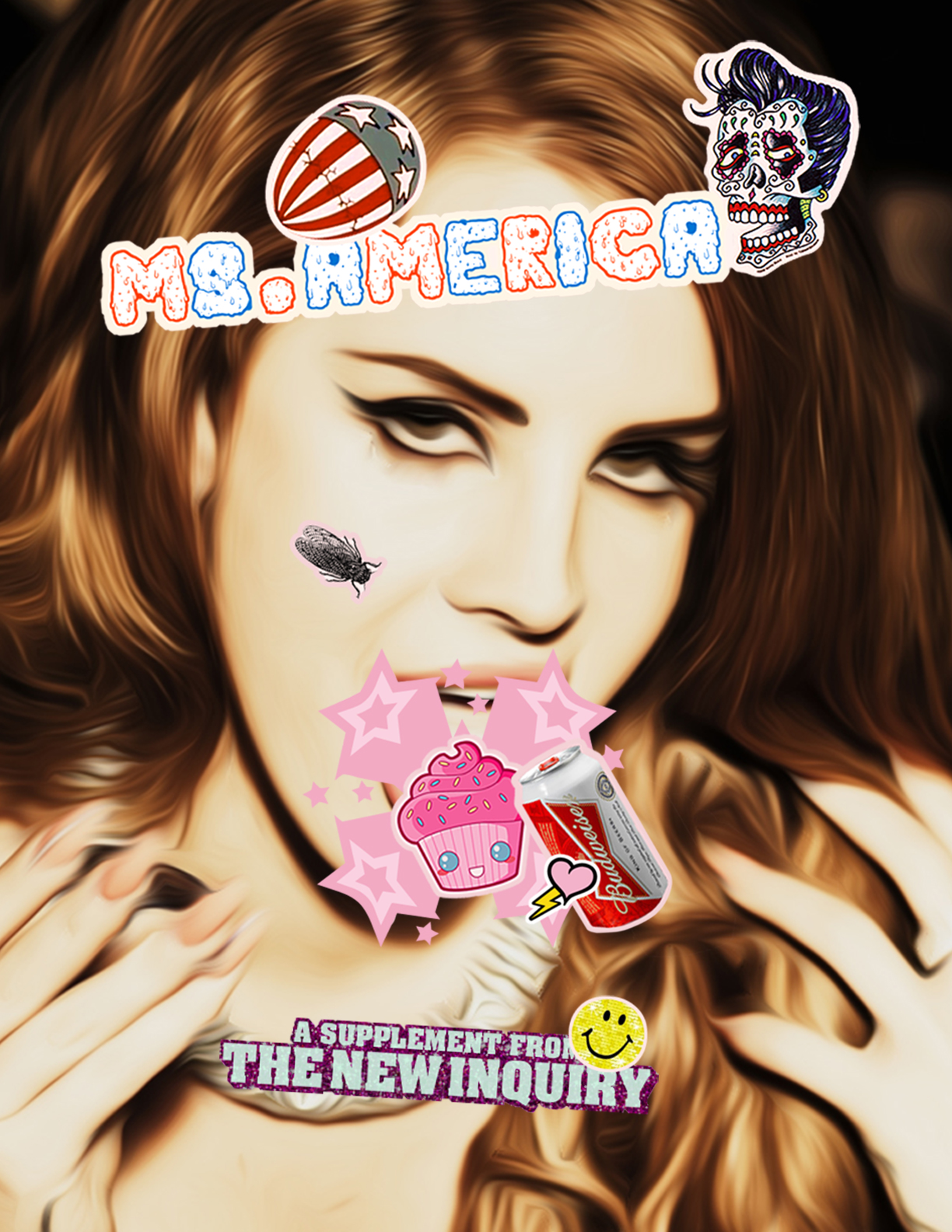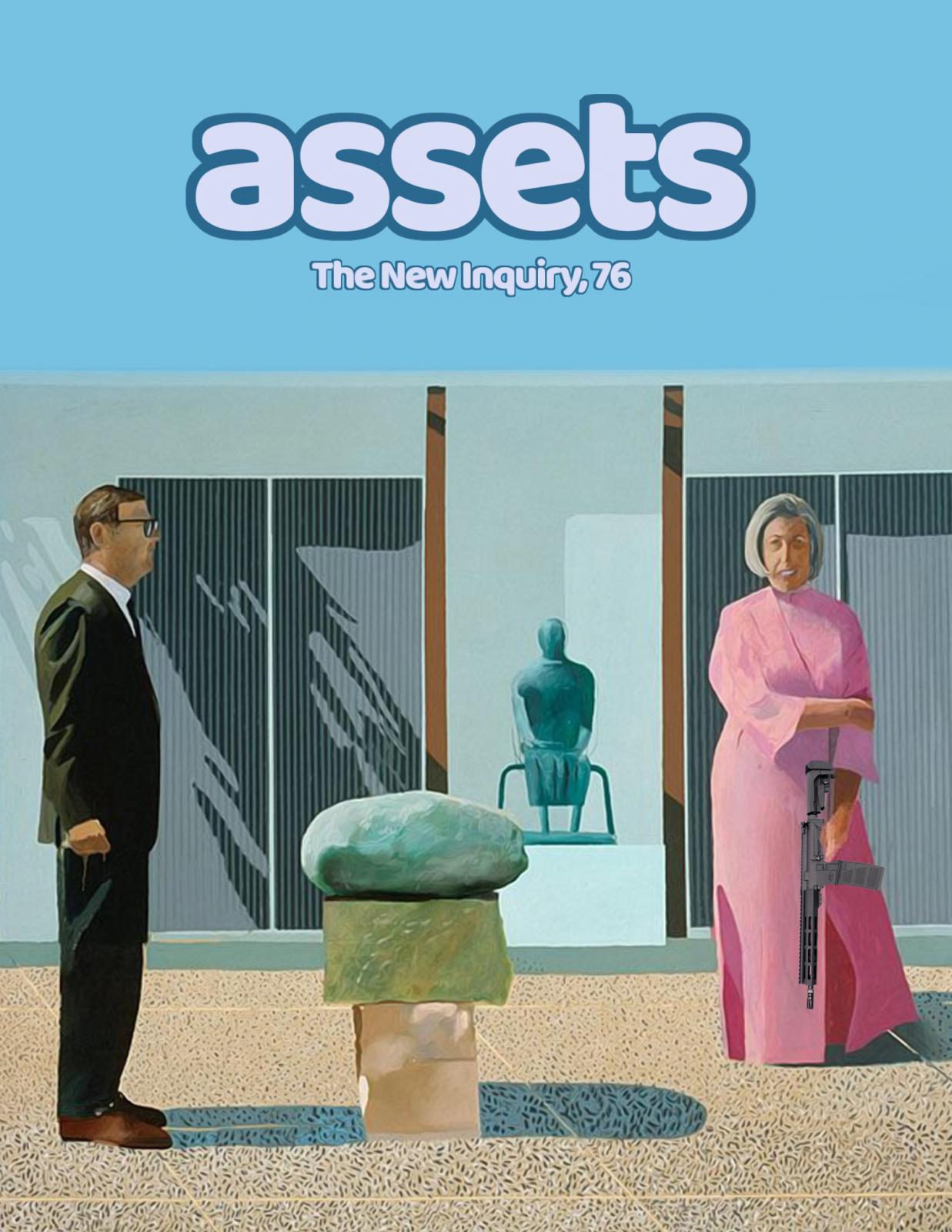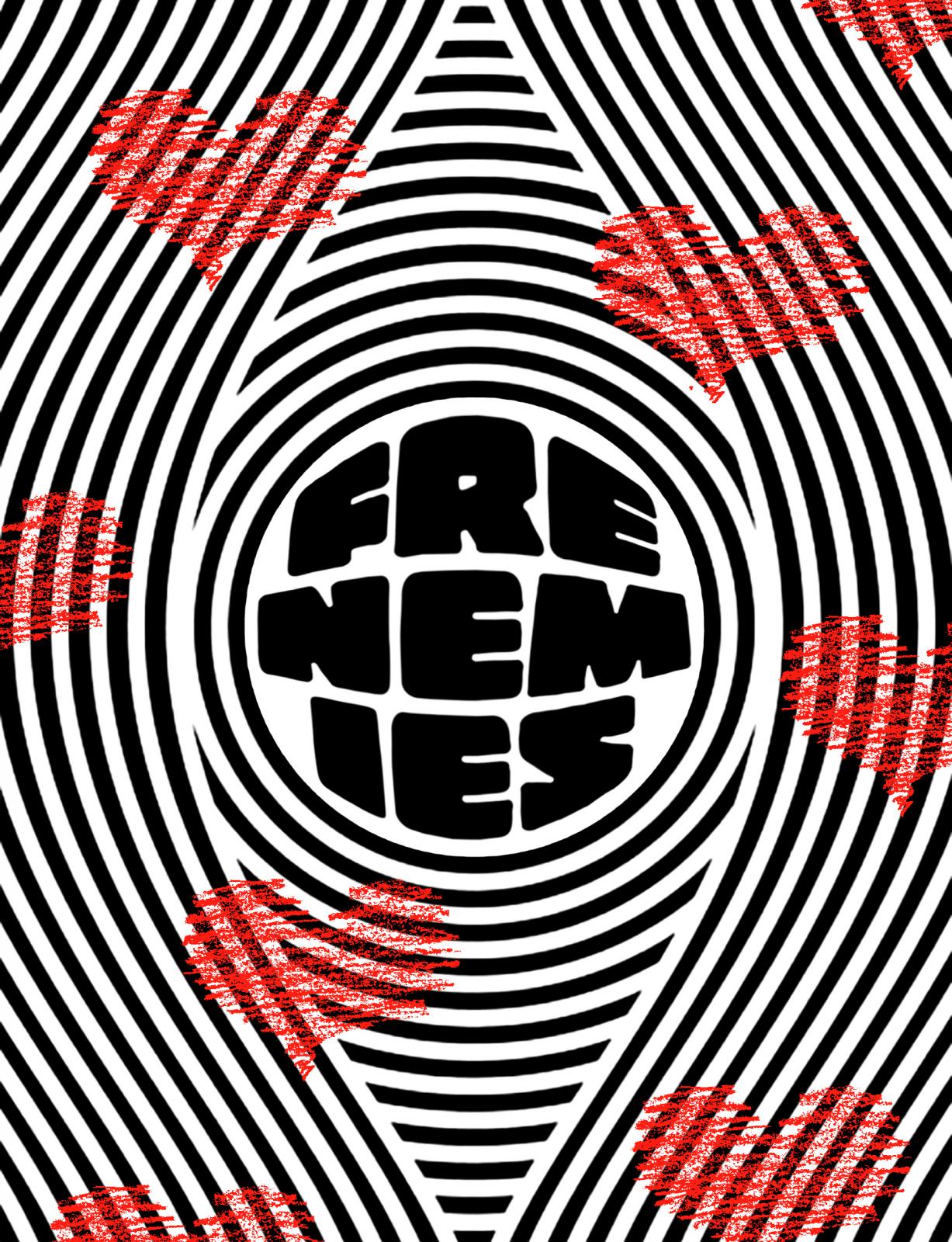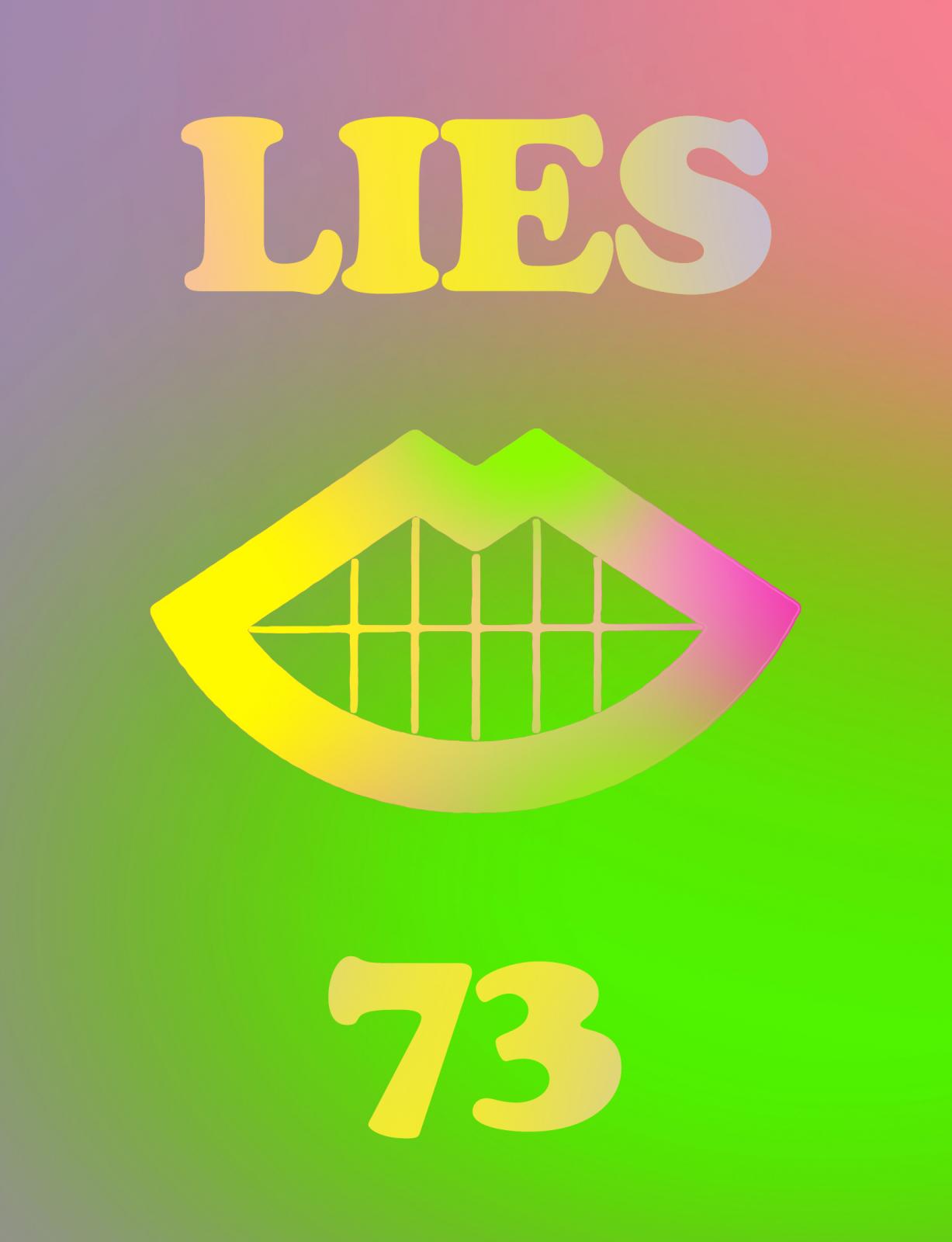Ms. America
Editors' Note
FOR those who came of age during the war on terror, when this country’s vulnerability was a fresh fact and failed wars, a recession, and a new surveillance apparatus pointed to a deep paranoia in adulthood, Lana Del Rey gives us a patriotism we can act out. Hers isn’t a love song to America; it’s a how-to manual.
As in: how to avoid disgust at the artifacts of a country whose ongoing crimes, against its own and its others, are only made more severe by its many declarations of goodness. How to cleave to a history whose most famous actors resemble bloated props. How to make sense of the decades spent trying to convince us a looming threat targeted something more fundamental to us than the policies dispatched from Washington—something shot in Super 8, not by a drone. Something that smelled like freshly mowed grass, something that would poison Friday night football games and renew the vigor of those that pronounced it ‘Merica. For those of us that had never been included in such a vision, the story had always been a hard sell.
That’s the America that existed on TV and in movies, the America seemingly populated only by white Christians. Many artists have spent careers trying to prove that America doesn’t exist. Or that if it does, it’s only steam rising from a rotting pie. I believe Lynch. But I also believe Lana. Because all that glorious Americana takes its cues from somewhere, right? There exist long stretches of open road flanked by desert and mountain and surf. There exist giddy poems about the exceptional, uniquely American spirit. The style and swagger of Mad Men has just as much to do with the devotion to historical accuracy as it does to the lighting department.
But to revel, even for a moment, in that America is to betray the one we live in. Lana Del Rey offers an alternative. She isn’t just for those who can’t tell whether it’s patriotism or Stockholm syndrome; she’s for those who don’t care about the difference. “Millenials and #Merica”—an MTV study released this month found that while “young people possess a deep connection to America” they are “hyper-aware of its flaws.” In fact, “8 in 10 young people agreed that some actions of the American government make it hard to be proud.” The word merica, the grunt of pride most often associated with rural Republicans, is now a meme. #Merica functions both as a label for the jingoism many of us now see as perverse—while also comfortably situating the tropes and heritage markers we still use. It’s a deliberate exaggeration, like Lana, captioning both the worst of our stereotypes and the most endearing.
Lana Del Rey reacquaints with the danger and intrigue that pop culture once promised our borders held. Borders of class, race, gender, geography—their drama instead of their unromantic factuality.
In “National Anthem” she casts A$AP Rocky as Kennedy as if we don’t currently have a black president. She traces her acrylic nails along the leathery shoulders of old men as if she doesn’t already have a song called “Lolita.” She raises her arms to the sky on the back of a motorcycle speeding down a southwestern highway as if we haven’t checked the weather and eta for our destination. She sings in a church as if Forever 21 hasn’t already sold tank tops with crosses on them. And she signs “the body electric” as if Levi’s hasn’t already made an ad with narration from a Walt Whitman poem.
Yes, it’s a classically white nationalism, one as fizzy and consumable as the Pepsi and Mountain Dew that appear in Lana’s songs (never the more globalized Coca-Cola). An American generation starved for an unfraught image of home can be sated by a pop star whose references are too stale to offend sung in an affect too flat to risk moving us. We know to take it as a product, not a symbol. The cowboys of yesteryear charged with “taming the frontier” are now just men in hats. And Lana will sing about them pretending they’re the most interesting men in the world.
She calls it Hollywood Sadcore; she could’ve called it anything at all. The point is that the rising strings and bluesy guitars collect the detritus of a failed vision of America. Not failed through trial, but failed as a vision. Because it won’t survive inheritance.
For those of us who grew up post everything she offers an easy patriotism that can be worn like a flag that isn’t also a salute. Like an alien excavating all that we once claimed made us American, Lana takes the artifacts that are too white, too ahistorical to be taken seriously, and removes the insistence upon them. It’s an obfuscation that isn’t facilitated through irony; it’s facilitated through a recent past that foreclosed on the promise of American symbols and reemphasized the primacy of images.
Lana Del Rey’s short film Tropico features Marilyn Monroe, John Wayne, and Elvis. Or more accurately, impersonations of all the Marilyn, Wayne, and Elvis impersonators that form succeeding generations’ memory of the characters.
Lana Del Rey herself isn’t yet an icon; her magic is less static. She curates putatively mundane Americana as exotic. The careful pastiche that earned her derision upon her debut is the very reason why she resonates today. The “authenticity” Lana’s earliest critics spent months interrogating is a wholly irrelevant question to the young people who gaze approvingly at her flower crowns and gold chains.
Lana Del Rey’s America is corny and flat but makes her neither because she isn’t corrupted by faith in the image she offers. She’s resilient in her noncommittal twirling and forthright appropriation of America’s most overexposed iconography. The perpetually mournful singer manages to sound reassuringly anonymous as she sings “Springsteen was the king, don’t you think?”
For those who spent their teen years typing in scare quotes, Lana offers a way to navigate American identity; by serving patriotic cliché as kitsch. When she urges, “Be young be dope be proud, like an American,” she may as well be an impressed tourist. A finally palatable Americana: full of no more sentiment than an Instagram grid.
Featuring
-
Ms. America
-
Once Upon a Dream
-
Wifey Status
-
Full-Time Daughter
-
Run, Boy, Run
-
Wound Down Inside
-
The Fake as More
-
Die 4 U





